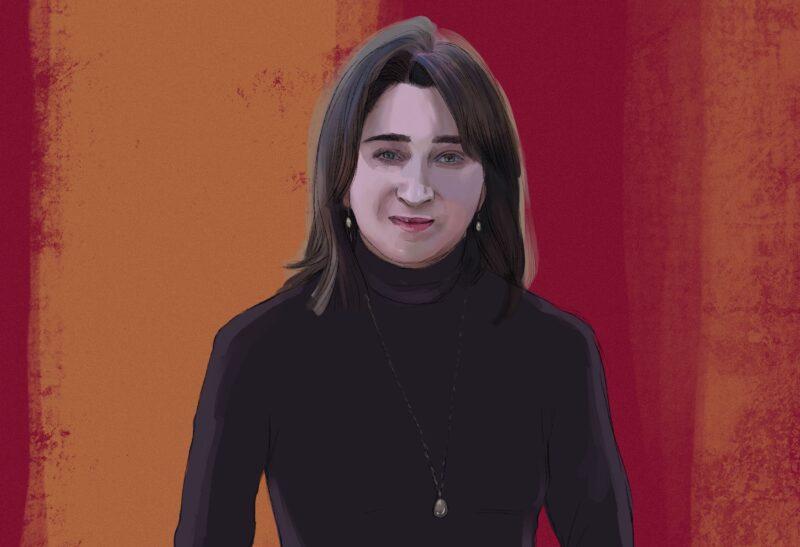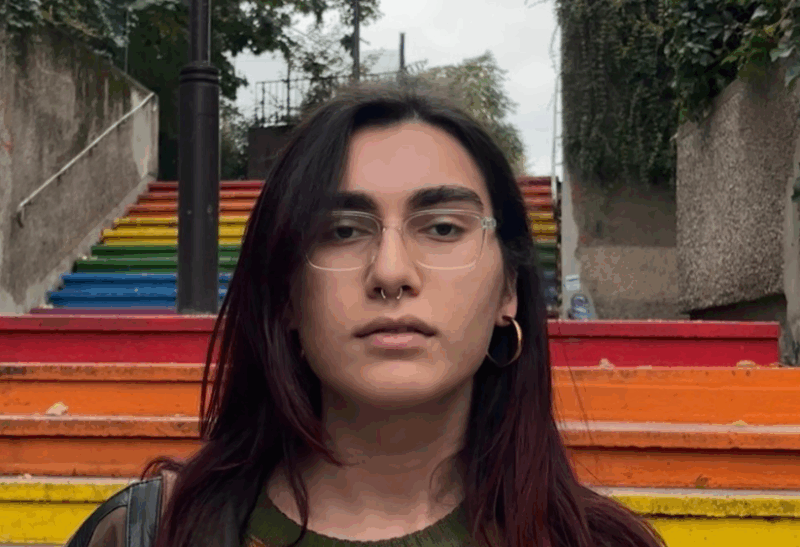The authorities’ failures to comply with the decisions of the ECHR have shattered citizens’ last hopes for justice
Samira Ahmadbayli
On January 7 of this year, in front of the presidential administration, former political prisoner Giyas Ibrahimov doused himself with gasoline and threatened to set himself on fire in protest against the Azerbaijani authorities’ failure to comply with the decision of the European Court of Human Rights (ECHR) regarding his unlawful arrest.
In 2021 alone, the ECHR issued 36 decisions in cases related to Azerbaijan, requiring the government to pay the plaintiffs compensation totalling about €2 million. But it remains an open question how many of these decisions will be implemented.
The implementation of 248 ECHR decisions related to Azerbaijan is currently being monitored. Of those, 46 are considered the “leading” cases. The cases considered “leading” are those dealing with the most flagrant violations of human rights, unique cases, and new legal problems which the ECHR has never encountered before. As the years go by the number of delayed decisions has grown. In 2011, the number of delayed and repeat decisions was 22, while in 2021 the number had risen to 202.
“Monument prisoners”
“In 2021, the ECHR issued a decision, based on article 18 [of the European Convention], that our arrest had been politically motivated,” Ibrahimov said in an interview with Meydan TV. “The court’s decision required the immediate release of Bayram Mammadov and myself and the payment to us of a total of €72,000 in compensation. But at the time the decision was issued we were already out of prison and only the part of the decision regarding compensation needed to be implemented. Over a year has passed since that time but I have only received two transfers of €3,000 each, and despite all my attempts I can’t get a definite answer or a guarantee as to whether I’ll be paid the whole amount or not.”
On the night of May 10, 2016, the young activists Ibrahimov and Giyas Mammadov wrote “Fuck the system! Happy Slave Day!” on the pedestal of a monument in the center of Baku to former Azerbaijani president Heydar Aliyev.
On the following morning, 1.5 kilos of heroin was “discovered” in each of the homes of the two young men, and they were both sentenced to years for sellings drugs. At that time Giyas and Bayram became known as the “monument prisoners.” When they were arrested they were both tortured. After serving about three years, they were pardoned by a presidential order.
May 10 is the birthday of Heydar Aliyev, the former president of Azerbaijan and the father of current president Ilham Aliyev. For many years that day was celebrated in Azerbaijan as “Flower Day.” Millions of manats were spent every year to decorate Baku and other large cities with flowers. All that was ended by Giyas and Bayram’s 2016 protest — the holiday has never been celebrated since.
“Compliance with this decision is a legal principle”
“I don’t believe that this payment is adequate moral or material compensation for my arrest,” explained Giyas. “But in any case, it’s something the government is required to do because it violated my rights, and the government should comply with this requirement regardless of the amount of the payment. It wouldn’t matter if it wasn’t 30,000, but only 3,000 or just 300 euros. I view compliance with this decision as a legal principle. In such situations, by failing to comply with the ECHR’s decisions, the government is concerned with demonstrating its power and its confidence in its own power. My protest is against that as well.”
Ibrahimov says that he has exhausted all legal means at his disposal and so he is currently biding his time:
“I’m going to play it by ear. If they expect me to resort to informal methods, to beg them, that’s not going to happen. It goes without saying that I consider that a violation of my rights, too.”
The state agencies responsible for implementing the ECHR’s decisions are the Presidential Administration and the Supreme Court. The deputy chairman of the Supreme Court, Chingiz Askarov, is also Azerbaijan’s plenipotentiary at the ECHR.
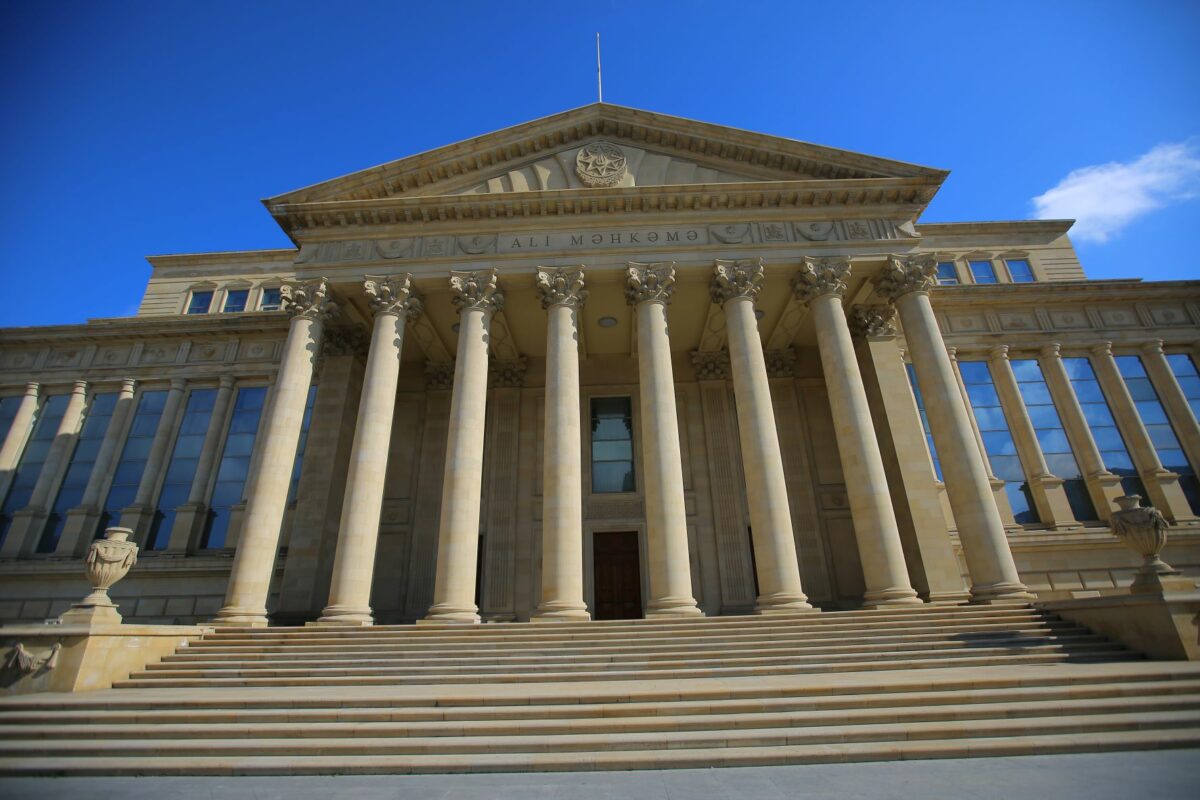
Ibrahimov says that he has contacted Askarov several times regarding the implementation of the ECHR’s decision regarding his case. “At first, he would at least pick up the phone and string me along with promises that my issue would be settled quickly,” says Giyas, “but then he stopped answering my calls.”
“Out of two decisions, one has been implemented partially and the other not at all”
Former political prisoner Tofig Yagublu finds himself in a similar situation.
In 2011, I filed a suit regarding the torture I was subjected to,” says Yagublu. “The ECHR found in my favor and the Azerbaijani government has to pay me €15,600 in compensation. The decision was issued in 2020, but the compensation has only been partially paid. It’s possible that the Council of Europe’s Committee of Ministers writes a letter to the government demanding payment, the government pays part of the compensation, and then everything stalls again.”
The ECHR found in Yagublu’s favor in another case as well, but according to Yagublu, that decision has not been implemented although it has been more than a year since it was issued.
“You can’t say that the Azerbaijani government doesn’t have the means to pay the compensation,” says Yagublu. “When it concerns decisions without any political significance, they pay. But when it concerns political questions, then they sometimes pay, and sometimes not. For example, they have owed Ali Karimli compensation since 2017, but they still haven’t paid it. And they haven’t paid Seymur Hazi. There are two decisions in cases that I’ve brought, one of them has been implemented partially, and the other not at all.”

Why decisions are not implemented
“Overall, Azerbaijan’s failure to comply with the ECHR’s decisions is a serious problem. Azerbaijan has one of the worst records of all the countries in the Council of Europe,” says lawyer Khalid Aghaliyev, creator of the site Avropa Məhkəməsi Gündəliyi (Journal of the European Court). His site covers all the activities regarding Azerbaijan of the European Court and the Committee of Ministers of the Council of Europe. He created the resource on his own initiative.
According to Aghaliyev, this problem has various causes.
“On the basis of lawsuits submitted from Azerbaijan, the court has recognized violations of the property rights of over a hundred people,” explains Aghaliyev. “This is primarily related to the fact that, after the occupation of part of Azerbaijan’s territory, many displaced persons flowed into Baku and moved into the apartments of local residents. These decisions aren’t implemented for obvious reasons. It’s rather problematic to evict them from these apartments and provide them with other housing.” He adds that it nevertheless cannot be denied that the government behaves differently with regard to some other plaintiffs.
“This usually concerns cases related to political views and the protection of basic rights and freedoms. Apart from everything else, Azerbaijan is one of the top four or five countries which most often violate the right of association, to create an NGO, the right to hold a meeting, protest, or rally. The reasons for failing to implement these decisions are also obvious. To fully implement these decisions would mean to protect the right of citizens to freely gather and create associations and organizations. Considering the position of Azerbaijani authorities, that’s unlikely.”
According to Aghaliyev, governments do not comply with the decisions of international courts with any particular enthusiasm. To implement the decisions issued requires a lot of work.
“Local and international NGOs, the government, and the applicant must all be closely involved. Legal talent plays a role in this multifaceted task, but it is also influenced by the state of democratic institutions in the country. In Azerbaijan, the problems of implementing the decisions we cited are largely related to the government’s approach. Because whether it’s the case of Ilgar Mammadov, Tofig Yagublu, Intigam Aliyev, Khadija Ismayil, or others, it wouldn’t be that difficult for the government to implement these decisions fully. Because a new examination of their cases and the payment of compensation are not issues beyond the powers of the government and can be decided with a simple instruction. Therefore, as I already said, overall everyone has their role to play in this process, but in the context of Azerbaijan, in my view, the key role in this question is played by the government.”
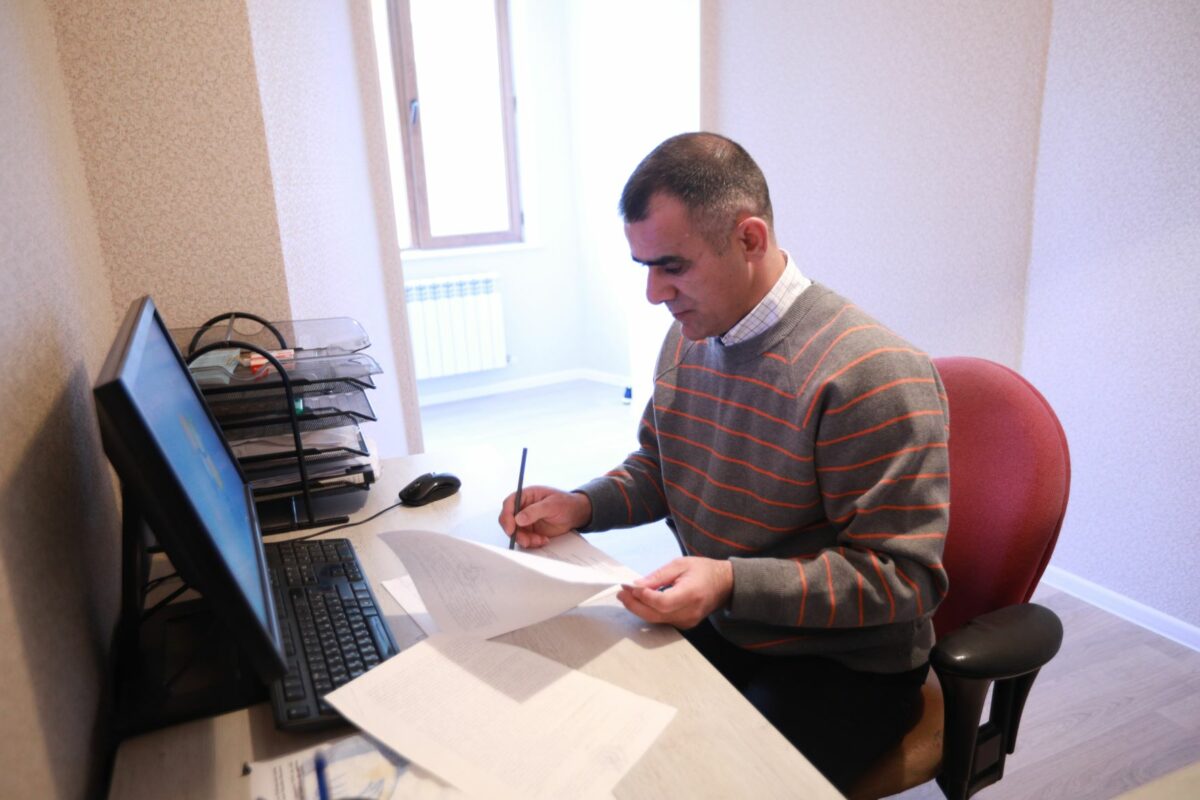
Over 7,200 complaints and more than 5 million in fines in 10 years
On January 17, 2001, Azerbaijan became a full member of the Council of Europe.
On April 15, 2002, it ratified the European Convention on Human Rights and its protocols. From that moment on, any person located within the jurisdiction of the Azerbaijan Republic (citizens, stateless persons, legal entities, etc.) has had the right to appeal to the European Court of Human Rights.
From 2002 to the beginning of 2021, the ECHR has received over 7,200 complaints from Azerbaijan.
At the outset of 2021, 3.3% (2,050) of all the complaints awaiting review by the ECHR were related to Azerbaijan. In this regard, Azerbaijan was in sixth place after Russia, Turkey, Ukraine, Romania, and Italy.
Over this period, the ECHR has issued 215 decisions related to Azerbaijan, the first of which was in 2006.
From 2006 to 2020, the overall amount of payments in cases brought against Azerbaijan totalled €5,268,676.
Every year, funds are allocated to expenditures related to the ECHR in the state budget of the Azerbaijan Republic. They are earmarked not only for complying with the decisions of the ECHR and paying compensation, but also for “the defense of the interests of Azerbaijan before the ECHR and the implementation of the decisions of that court.” These funds are also indirectly allocated for the support of Azerbaijan’s plenipotentiary at the ECHR.
The funds are distributed by the presidential administration and are spent for the cited purposes. In 2007-2019, the total amount allocated from the state budget for these purposes was more than AZN 15 million.
“The payment of compensation does not imply full compliance with the decision”
“To this day, not a single decision of the ECHR has been fully implemented by Azerbaijan,” says Tofig Yagublu. “Sure, leaving aside political questions, in most cases the plaintiffs receive compensation. And everyone thinks that the decision has been fully implemented. But if the ECHR upheld a complaint, that means that the case was decided incorrectly at every level of the judicial system in Azerbaijan and it must be reviewed. The government of Azerbaijan maintains that its obligations end with the payment of compensation and it tries to instill that belief in the public. The case should be reinvestigated and everyone who was involved in its fabrication — the investigator, the judges at all levels, the perjurers — they should all be punished. It shouldn’t be so simple to play with human life and take 5-10 years from someone.”
He believes that the ECHR should not drop the cases of plaintiffs who have received compensation, but continue to pursue full compliance with its decisions.
The lawyer Khalid Aghaliyev agrees.
“After the ECHR announces its decision and it enters the stage of implementation, the measures taken are primarily of an individual nature. This means the payment of material compensation and a review of the case in the local courts. In parallel, measures of a more general nature should be taken, because it is necessary to change the conditions which allowed the violations of citizens’ rights. So for example, if a citizen’s rights were violated because of problems with legislation, then within the framework of general measures the legislation should be improved.”
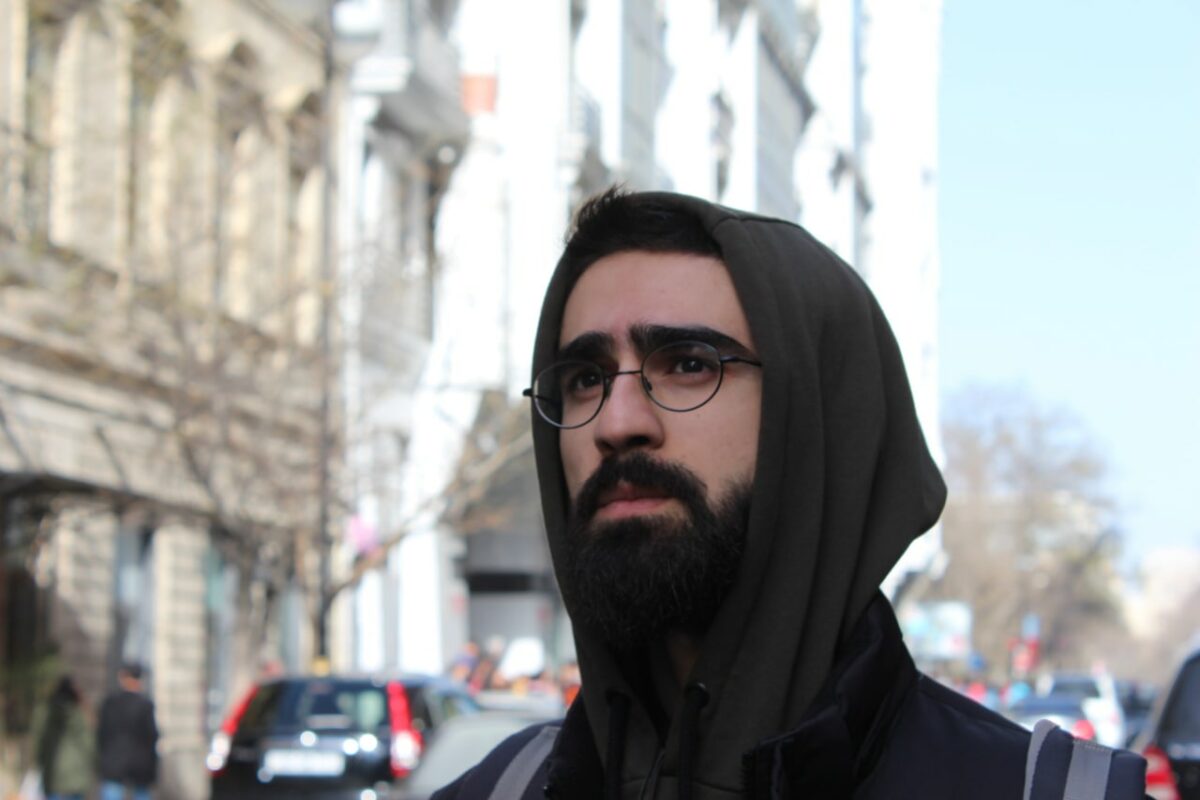
According to Aghaliyev, this is a very complex process which should involve all structures of civil society and the plaintiff’s lawyer, while the government should pursue it with appropriate zeal.
“Compliance with the decisions of the ECHR is overseen by the Committee of Ministers of the Council of Europe and there should be a constant correspondence with them. Which steps have been taken within the individual and general frameworks, which haven’t, and which ones must be taken, but the authorities don’t do that — the Committee of Ministers has to be informed of all that regularly so that they in turn can remind the government and implore it to fulfill these tasks. Plaintiffs who have been successful at the ECHR and received compensation should not think that their task is complete, but should try to change the conditions which allowed the violation of rights.”
Do mechanisms exist to punish governments which do not comply with the decisions of the ECHR?
According to Aghaliyev, the consequences for failing to implement the decisions of the ECHR are regulated by the European Convention. Article 46 of the Convention requires all countries to fully comply with the decisions of the European Court.
“But this article is used quite rarely,” the lawyer explains. “Because most European countries almost always implement the decisions of the ECHR fully, and to this day there has never been any particular need to resort to this article. But what could happen if a decision is not implemented? The country’s right to vote in the Council of Europe can be restricted, its membership can be suspended, or as an extreme measure, the country could be expelled from the Council of Europe. But in practice this is rarely used. There has never been a case that went so far as expulsion. But in theory, if decisions are not implemented that’s a possibility.”
In Azerbaijan, issues related to the implementation of court decisions are largely related to the government’s approach.
“Because whether it’s the case of Ilgar Mammadov, Tofig Yagublu, Intigam Aliyev, Khadija Ismayil, or others, it wouldn’t be that difficult for the government to implement these decisions fully. Because a new examination of their cases and the payment of compensation are not issues beyond the powers of the government and can be decided with a simple instruction. Therefore, the key role in this question is played by the government.”
The case of Ilgar Mammadov as a precedent
Aghaliyev says that the most serious procedure regarding violations in the whole history of the ECHR’s existence was initiated against Azerbaijan because of the case of Ilgar Mammadov, the leader of the ReAl Party.
“The ECHR demanded the immediate release of Ilgar Mammadov from prison. But the Azerbaijani government didn’t do it. After that, a procedure on the violations was launched. Ilgar Mammadov was released and the procedure was ended. Apart from that instance, no such procedure has ever been launched.”
Two different approaches to one case
Opposition politicians Ilgar Mammadov and Tofig Yagublu were arrested in January 2013 on charges of organizing mass riots in the region of Ismayilli in Azerbaijan, and were sentenced respectively to seven and five years of incarceration.
Tofig Yagublu was released early on parole in July 2015. Ilgar Mammadov was released in August 2018 after the Council of Europe’s Committee of Ministers launched a procedure against the Azerbaijani government regarding violations.
In September 2020, Azerbaijan’s Supreme Court upheld Ilgar Mammadov’s demand to have his conviction wiped from his record and the government paid him compensation for moral damages in the amount of AZN 234,000.
But for Tofig Yagublu, who spent two and a half years in prison on the same charges, his conviction still stands and the Azerbaijani government is in no rush to comply with the ECHR’s decision in his favor.
“First of all, it must be said that Ilgar Mammadov’s lawyer, Fuad Aghayev, did a better job,” says Yagublu. “This victory which all the members of ReAl, including Ilgar Mammadov, are so proud of should actually be attributed to Fuad Aghayev. But I think that the government’s compliance with this decision was based on a political agreement. It was unequivocally a political decision.”
He says that they have sent a new complaint to the ECHR using Ilgar Mammadov’s case as a precedent:
“Ilgar Mammadov had his conviction wiped and received compensation in an absolutely identical case, so let them be so kind as to take the same approach in my case.”
***
Giyas also intends to continue to demand full payment of the compensation he is owed:
“Yes, this is my personal demand. But on the other hand, if this happened to me and I did nothing, then it could happen to others. The government would happily continue to fail to execute the decisions of the European Court, it would think that it can get away with it.”
With the support of the Russian Language News Exchange


